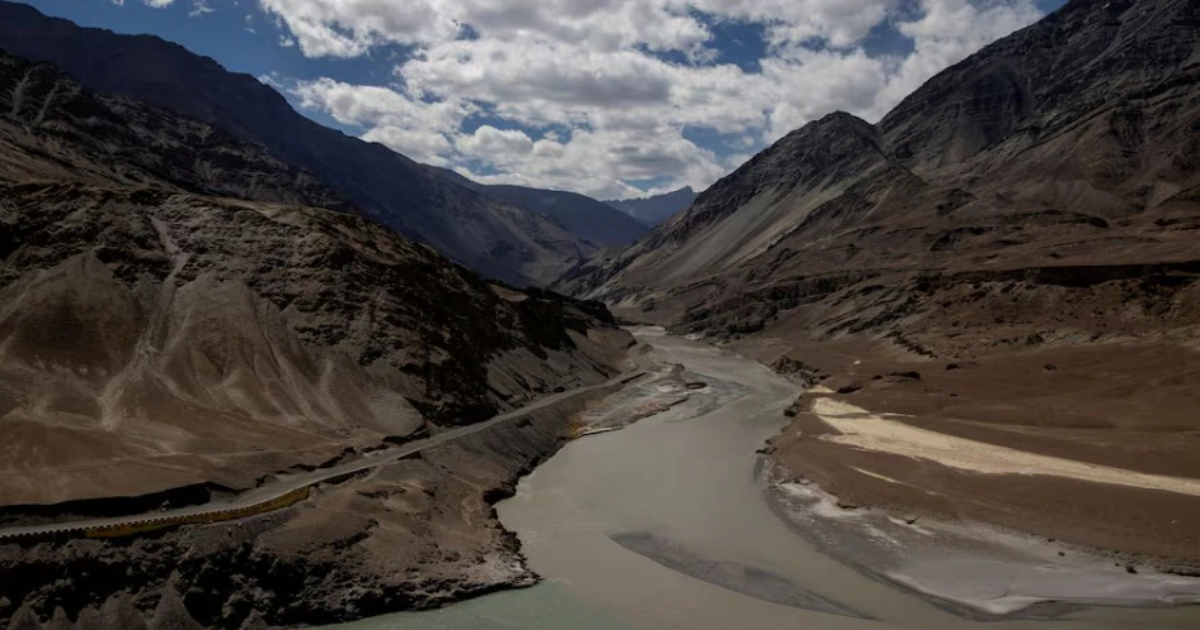The temporary suspension of the 1960 Indus Waters Treaty in response to the deadly attack in Jammu and Kashmir’s Pahalgam by Pakistan-backed terrorists has prompted a flurry of questions.
What’s all there in the pact? Which country does it benefit the most? And most importantly, can it really deal a blow to Islamabad? We try to answer these questions.
WHAT’S IN THE INDUS WATERS TREATY?
The bilateral treaty governs how the waters of six rivers of the Indus basin – Indus, Jhelum, Chenab, Ravi, Beas and Sutlej – are utilised and distributed between India and Pakistan.
It allocates the western rivers (Indus, Jhelum and Chenab) to Pakistan and the eastern rivers (Ravi, Beas and Sutlej) to India. At the same time, the treaty allows each country certain uses on the rivers allocated to the other.
Apart from India and Pakistan, the World Bank is also a signatory to the pact, which has so far survived political, military and diplomatic tensions and three wars.
A country can build hydroelectric projects on rivers meant for the other country, as long as it doesn’t reduce or block the flow of water downstream.
Of the six rivers, four originate from different places in north India while two others are born in Tibet, currently administered by China. Ravi originates from Kullu hills, Beas from Beas Kund near Rohtang Pass, Jhelum from Verinag Spring in Kashmir and Chenab from the confluence of Chandra and Bhaga rivers in Himachal Pradesh’s Tandi. Sutlej flows from Rakshastal Lake and Indus from Lake Mansarovar in Tibet.
Both India and Pakistan have constructed a number of dams and hydropower projects on these rivers.
WHY IS IT IMPORTANT FOR PAK?
More than 20 hydropower projects – operational and planned – in Pakistan and Pakistan Occupied Kashmir (POK) rely on the Indus, said Dr Y Nithiyanandam, Professor and Head of Geospatial Research Programme at Takshashila institution.
A third of Pakistan’s electricity comes from hydropower, generated by water flowing through Tarbela, Mangla and other reservoirs. If upstream flows are reduced or poorly timed, it could cut its power generation capacity.
PREDICTABILITY
The treaty provides for a predictable flow of river waters for Pakistan. Pakistan’s entire irrigation, energy and water management systems are built around this predictability.
Sowing of seeds and canal schedules in Pakistan are based on this predictable flow. The suspension would also entail no sharing of river flow data by India, which could be susceptible to both drought and floods.
The livelihoods of more than 15.2 crore Pakistanis are directly or indirectly tied to the river Indus. It is a vital resource for food production, electricity generation, and economic activity, making it an indispensable lifeline.
WHEN TO EXPACT IMPACT?
It’s not as if India will push a button and the taps will go dry in Pakistan the next day. But life could become more difficult in Pakistan.
“Any on-ground changes by India, including river diversion or major alteration to the river flows, will require at least a couple of years,” said Dr Nithiyanandam.
The western rivers are enormous. As the ice melts between May and September, it will be difficult for India to hold all the water with the present infrastructure. The hydropower projects in India have very limited live storage.
MORE TROUBLES FOR PAK
Studies on the Indus basin have shown that Pakistan’s lower reaches have been experiencing overextraction of water and reduced river flow. Conditions are projected to worsen over the next three decades.
With rising domestic demand and escalating climate change impacts, the water stress index in these areas exceeds a value of 2, signalling extreme scarcity.
Pakistan has historically underinvested in sustainable water utilisation. At present, Pakistan lacks both the financial capacity and infrastructure to develop viable alternatives.
Shortfalls or shifts in river timing will intensify inter-provincial tensions, especially between Punjab and Sindh, where water-sharing debates are already politically charged.
There are downsides to this decision too. India, being a downstream country on rivers like the Brahmaputra that originate in China, has long upheld the principle of respecting downstream rights. By suspending the treaty and acting unilaterally, it risks setting a precedent that could be used against it.
